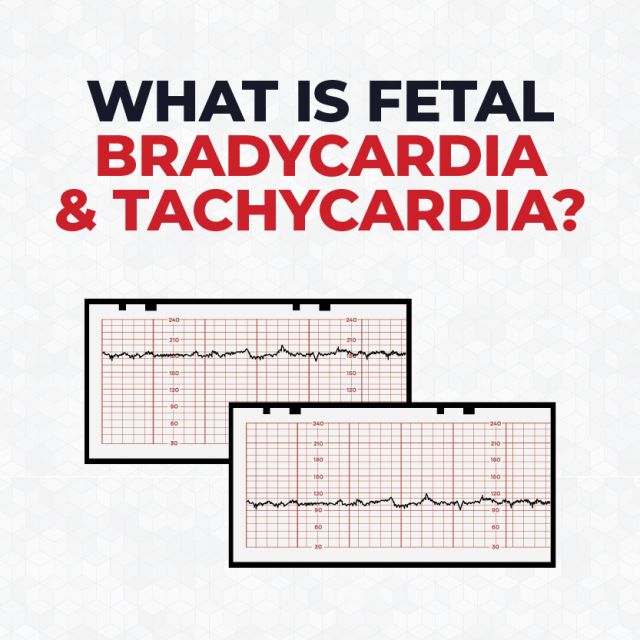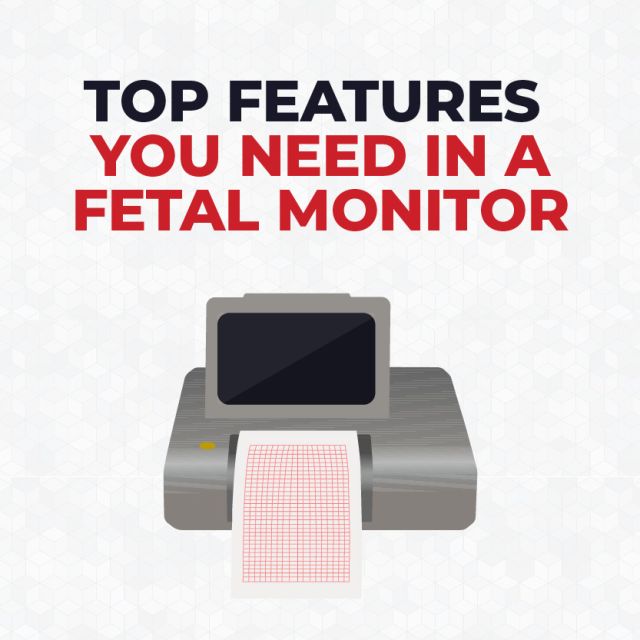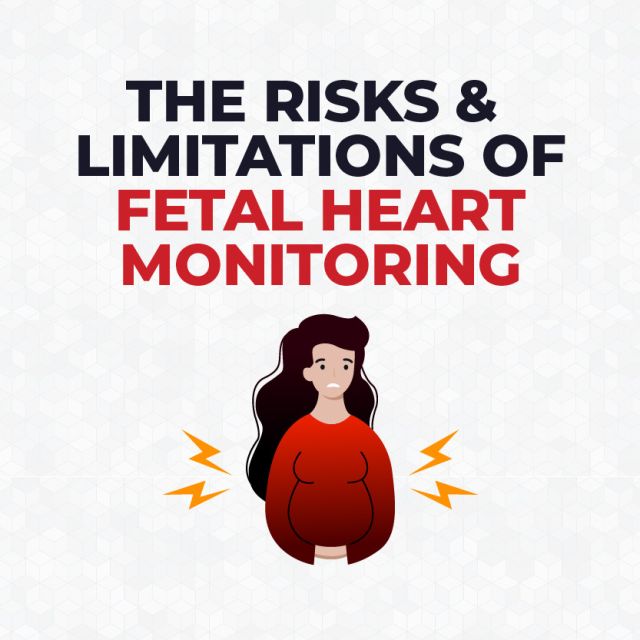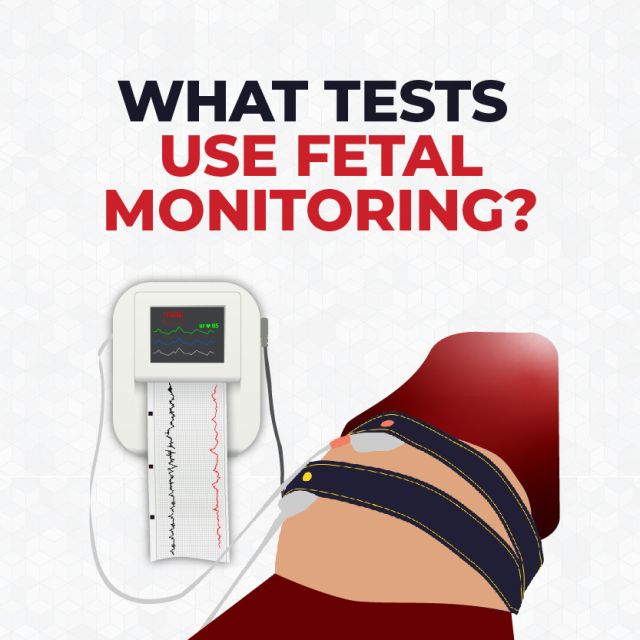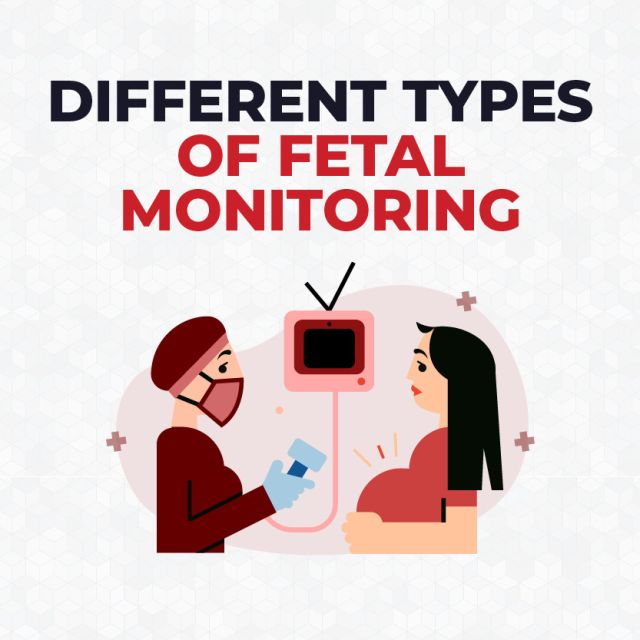Healthy Pregnancy: 5 Helpful Tips
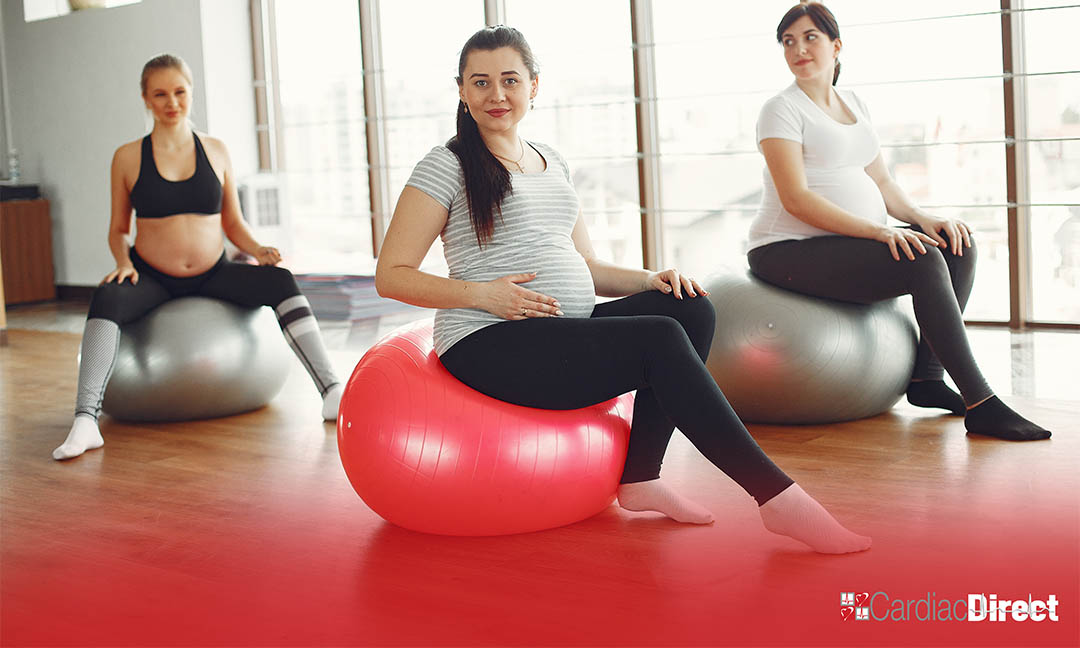
Health Tips for Pregnancy
Whether you are currently pregnant or considering pregnancy, our health tips for pregnancy can help give you insight on how to maintain healthy habits during and after pregnancy.
Healthy Weight Gain
Gaining appropriate amounts of weight during pregnancy will help your child grow to a healthy size. Too much or too little weight may lead to health problems for you and your baby. If you gain too much weight during pregnancy raises one’s chances of developing gestational diabetes and high blood pressure with an increased risk later in life.
By gaining a healthy amount of weight, it can help have an easier pregnancy and delivery. Getting into these practices could even help the mother get back to their normal weight after delivery. Research has proven that recommended amounts of weight gain during pregnancy can also lower the chances that you or your child will have weight-related problems later in life (1).
The amount of weight needed to be gained during pregnancy depends on one’s body mass index (BMI) before pregnancy. BMI is a measure of your weight in relation to your height. Our general weight- gain advice can be seen in the table below for women having only one baby.
if you are… |
you should gain about… |
|---|---|
| Underweight (BMI less than 18.5) | 28-40lbs |
| Normal weight (BMI of 18.5-24.9) | 25-35lbs |
| Overweight (BMI of 25-29.9) | 15-25lbs |
| Obese (BMI of 30+) | 11-20lbs |
In order to pace correctly try and gain 1 to 4 pounds total in the first 3 months and 2 to 4 pounds each month from 4 months until delivery. Remember everyone is unique, please consult with your doctor to see how much weight gain is appropriate for you.
What other new habits may help with weight gain?
- Consuming breakfast every day. If feeling sick to your stomach every morning, try dry whole-wheat or crackers when you first wake. Eat them before you get out of bed and eat the rest of your breakfast later in the morning.
- Eating high-fiber foods. High-fiber foods, drinking water, and getting daily physical activity may help prevent constipation. Eating whole-grain cereals, brown rice, vegetables, fruits, and beans.
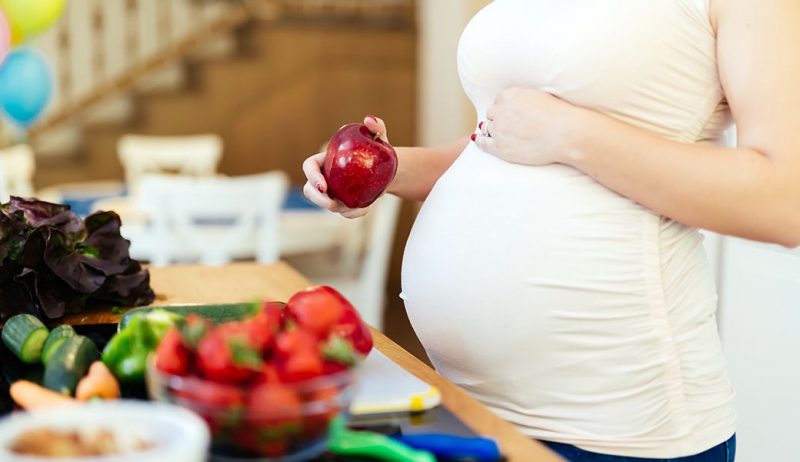
Healthy Eating Habits During Pregnancy
How much do you need to eat and drink?
Consuming healthy foods and low-calorie beverages, particularly water, and the number of calories may help you and your baby gain the proper amount of weight. Again, this all depends on things such as weight before pregnancy, your age, and metabolism. If at a healthy weight the CDC recommends no need for extra calories in the first trimester, about 340 extra calories a day in your second trimester, and around 450 extra calories a day in the third trimester. Always check in with your healthcare professional with a consultation before determining how much weight you need to put on.
Food and Beverage Choices
A healthy eating plan for pregnancy includes nutrient-rich foods and beverages. The 2015–2020 Dietary Guidelines for Americans recommends these foods and beverages each day:
- Fruits and vegetables (provide vitamins and fiber)
- Whole grains, such as oatmeal, whole-grain bread, and brown rice. (provides fiber, b vitamins, and other needed nutrients)
- Fat-free or low-fat milk and milk products or non-dairy soy, almond, rice, or other drinks with added calcium and vitamin D.
- Protein from healthy sources, such as beans and peas, eggs, lean meats, seafood that is low in mercury (up to 12 ounces per week), and unsalted nuts and seeds, if not allergic.
A healthy eating plan will usually limit salt, solid fats (shortening, lard, IE), and sugar-sweetened drinks and foods. When debating whether or not to create a new eating or meal plan, ask yourself a few questions:
- Does your meal plan measure up?
- How can you improve your habits?
What if You are a Vegetarian?
A vegetarian eating plan during pregnancy can be a healthy option. Consider the neutral value of each meal and consult with a healthcare practitioner to help ensure you are getting enough calcium, iron, protein, vitamin b12, vitamin D, and other needed nutrients either through well-balanced meals and or supplements.
During pregnancy, one needs more vitamins and minerals such as folate, iron, and calcium. Getting the appropriate amount of folate is very important. Folate, a B vitamin also known as folic acid, may help prevent birth defects. Before pregnancy, you need 400 mcg per day from supplements or fortified foods, in addition to the folate you get naturally, you need 600 mcg during pregnancy. While breastfeeding, one needs 500 mcg of folate per day. Foods high in folate include orange juice, strawberries, spinach, broccoli, beans, fortified bread, and fortified low-sugar cereals. These foods may even provide 100% of the daily value of folic acid per serving. Other vitamins such as prenatal vitamins are also standard to fulfill nutritional needs.
What foods and drinks should you try to avoid?
Certain foods and drinks can harm a developing baby. Here is a list of items you should avoid:
- Alcohol. Do not drink alcohol, such as wine, beer, or hard liquor.
- Caffeine. Enjoy decaf coffee or tea, drinks not sweetened with sugar, or water with a dash of juice. Avoid diet drinks, and limit drinks with caffeine to less than 200mg per day – the amount in about 12 ounces of coffee.
- Fish that may have high levels of mercury. Limit albacore tuna to 6 ounces per week. Do not eat king mackerel, marlin, orange roughy, shark, swordfish, or tilefish. To get the helpful nutrients in fish and shellfish, 12 ounces per week is ideal.
- Foods that may cause illness in you or your baby. Soft cheeses made from unpasteurized or raw milk; raw cookie dough; undercooked meats, eggs, and seafood; and deli salads. Take great care in choosing processed meats and foods.
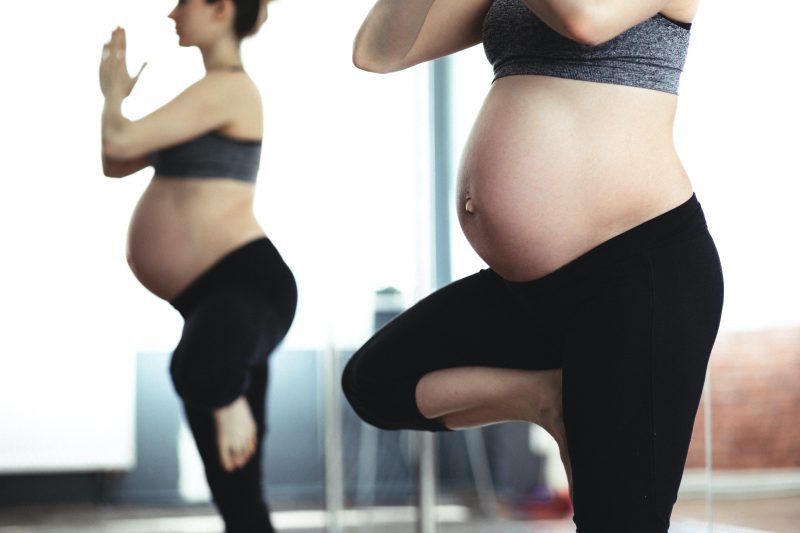
Recommended Physical Activity
Should You be Physically Active During Your Pregnancy?
It is recommended that women should be physically active while maintaining a healthy pregnancy. Research shows that regular physical activity may:
- Help you and your baby gain the appropriate amount of weight
- Limit backaches, leg cramps, and bloating
- Reduce your risk for gestational diabetes
- Decrease the risk of developing health problems during pregnancy such as high blood pressure
- Reduce risk for postpartum depression
What Type of Physical Activity do You Need?
According to guidelines, most women need the same amount of physical activity as they did before becoming pregnant. Try for at least 150 minutes a week of moderate-intensity aerobic activity. Try and use large muscle groups to increase heart rate and breathing.
One way to gauge if you are doing moderate-intensity aerobic activity is to take the “talk test”. If you are breathing hard can still conversate -but not sing- then you are in the moderate-intensity range.
It is always recommended to talk to your health care professional about whether to adjust your physical activity while pregnant. If you have health issues such as obesity, high blood pressure, diabetes, or anemia, ask your health care professional about a level of physical activity that is safe for you and your baby.
How Can You Stay Safe While Being Active?
For you and your baby’s health and safety, you should not do certain types of physical activities while pregnant. Refer to the table below for the safety do’s and don’ts for a healthy pregnancy:
do… |
don’t… |
|---|---|
| Choose moderate activities that aren’t likely to hurt you such as, walking or water aerobics | Engage in sports where you are at risk to fall or injure your abdomen |
| Drink fluids before, during, and after being physically active | Avoid exercising outside in hot weather |
| Wear clothing that is comfortable, fits well and protects your breast | Do not use steam rooms, hot tubs, or sauna |
| Stop exercising if you feel dizzy, short of breath, tired, or sick to your stomach | Avoid exercises that call for you to lie flat on your back after week 12 in your pregnancy |
After Birth
How Can You Stay Healthy after Your Baby Is Born?
Following delivery, your health may be better if you try to return to a healthy weight slowly. Not losing your “baby weight” could actually lead to recurring obesity later in life. Exercising and eating right to a lower weight in a controlled manner will lower your chances of diabetes, heart disease, and other weight-related problems. Be sure to eat food and beverages that meet your caloric needs and continue with a healthy amount of physical activity.
Breastfeeding Tips
For moms that breastfeed, experts advise that feeding their babies only breast milk for the first 6 months, no other food or drinks at this time. It is recommended to breastfeed for at least a year. Talk with a healthcare professional on how many calories you need while you are breastfeeding. Breastfeeding has been known to give your baby an appropriate mix of vitamins, minerals, and other important nutrients that are easy to digest, which in turn boost their immunity and protects them from common health problems.
Works Cited:
[1] Rasmussen KM, Yaktine AL, eds; Institute of Medicine (U.S.) and National Research Council (U.S.) Committee to Reexamine IOM Pregnancy Weight Guidelines. Weight gain during pregnancy: reexamining the guidelines. Washington, DC: The National Academies, 2009. www.ncbi.nlm.nih.gov/books/NBK32813 NIH external link. Accessed April 15, 2019.
[2] Folate: fact sheet for consumers. Office of Dietary Supplements, National Institutes of Health, U.S. Department of Health and Human Services website. https://ods.od.nih.gov/factsheets/Folate-Consumer/ NIH external link. Updated December 7, 2018. Accessed April 15, 2019.
[3] You’re pregnant: now what? Staying healthy and safe. Office on Women’s Health, U.S. Department of Health and Human Services website. www.womenshealth.gov/pregnancy/youre-pregnant-now-what/staying-healthy-and-safe External link. Updated January 30, 2019. Accessed April 15, 2019.


